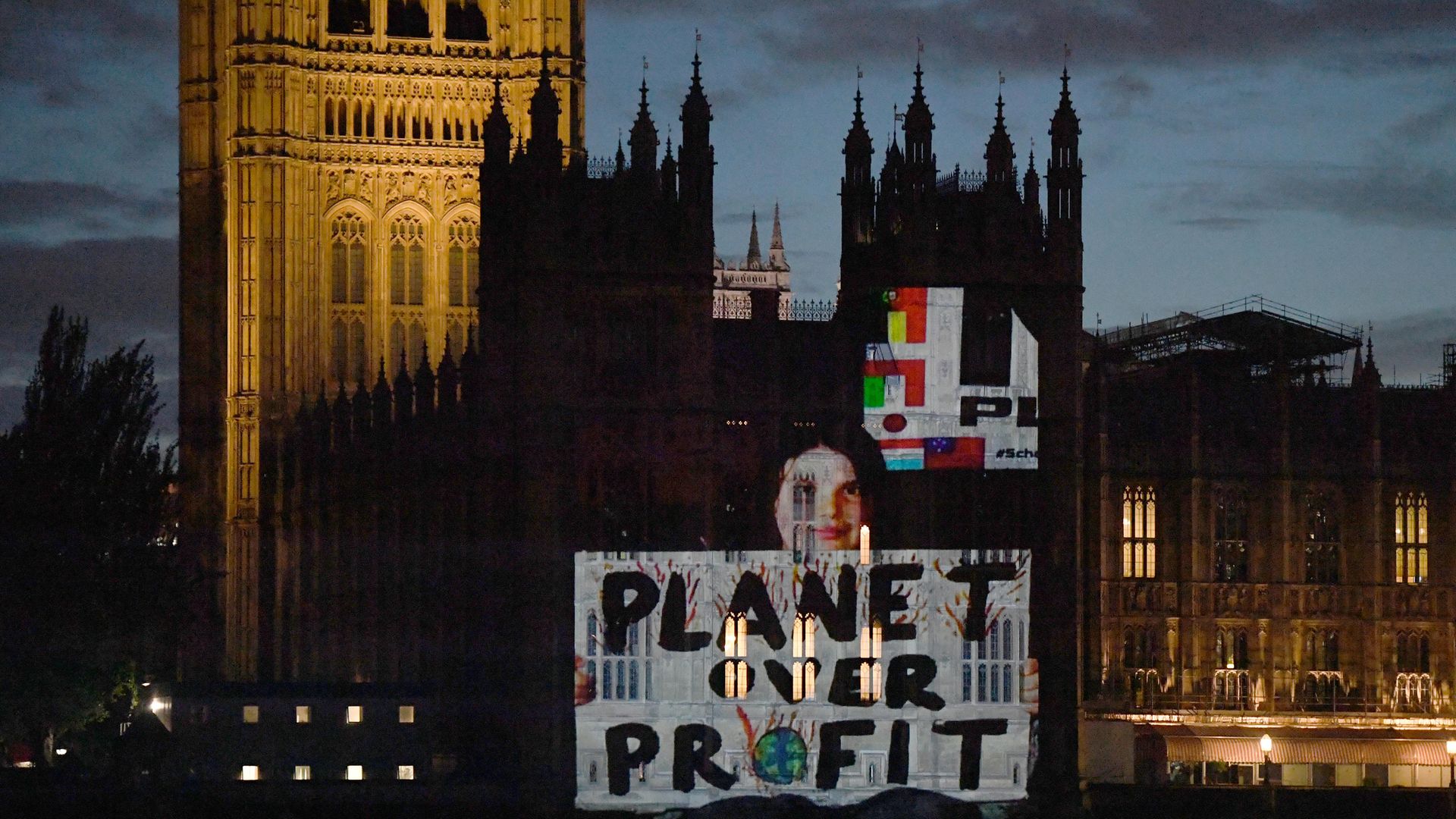
It’s easier to make promises than to keep them. That’s true in every area of life and it’s especially true in environmental policy.
Political leaders love making promises about a green future. It brings up images of sun-kissed meadows and fresh clean air. But you can’t judge them on the promise. You have to judge them on the implementation of it. And that’s where it often falls down.
Implementation is the crunch point. It’s where prices rise at the pump, or a wind farm is built down the road, or energy bills go up. The dreams of a clean future meet the sacrifices necessary to achieve them. Then the opposition starts and leaders often scramble to undo the very programmes they once celebrated.
This is the key dynamic in climate change politics. It’s not just about the pledges politicians make, but the systems they put in place to ensure they abide by them. And that’s where Brexit comes into play. It involves a fundamental rupture in the enforcement system for green policy. What was once firm has become weak and unreliable.
The story starts with David Cameron. He is a parable for the way that seemingly harmless green ambitions can become politically toxic once they have to be implemented.
One of the first things Cameron ever did as leader of the opposition in 2006 was take a trip out to the Arctic and pose with some sledge dogs. The green agenda was convenient to him. He could use it to detoxify the Tory brand. But by 2013, when he was prime minister and coming under fire from Labour leader Ed Miliband over energy bills, it was no longer convenient. Instead, he was demanding his ministers “get rid of all that green crap”.
What happened in those intervening years to prompt such a change of heart? The answer is political reality. It turned out that many Conservative voters weren’t so keen on these wind farms that were being built. And energy customers facing financial chaos and austerity were suddenly landed with significantly higher bills to reflect the increased costs which had been imposed on energy companies.
The same dynamic can be seen around the world. Australian prime minister Kevin Rudd had his premiership brought to an end due to controversies over a carbon tax. When France cut speed limits on country roads and raised taxes on fuel to pay for tax cuts for business, it triggered the gilet jaunes movement, which metastasized from a group of irritated drivers to angry protests in which men waved mock guillotines. In the Netherlands, there is currently outrage over reduced speed limits to comply with emissions targets. In Germany, fuel taxes and coal are an incendiary area of debate.
These issues provide a recruiting ground for right-wing populists. The Dutch Party for Freedom is promising to raise the speed limit to 140kph. The Sweden Democrats and the Alternative for Germany are kicking back against “pointless, unaffordable climate policy”. In the UK, Nigel Farage is making opposition to cycle lanes and other green initiatives a core part of his new Reform party’s agenda. This won’t win them power, but it can provide enough of an electoral threat to disenchant mainstream political leaders with their environmental commitments. Suddenly those lofty emission targets don’t look so innocuous.
The EU provides a partial solution to this dynamic. It comes through legal enforcement of environmental policy at the supranational level.
The EU passes continental carbon emission targets and then parcels them up to member states. It also passes a raft of other environmental legislation which countries have to enforce.
None of this is easy. There is an east-west divide in EU policy-making. Poland, which is heavily coal-dependent, leads the resistance. The UK used to lead those who wanted to move more aggressively.
Germany acts as a swing country, torn between its broadly progressive instincts and its coal dependency, its heavy industry and its influential auto sector. Britain’s departure from the bloc meant the balance of power swung towards Poland.
In recent years, Britain went further than the European requirements. It cleaned up its electricity system, removed coal, quadrupled renewable energy and built the biggest offshore wind market in the world. Offshore and onshore wind power and solar power were subsidised, paid for by levies on energy bills. And that then led to the political discontent which prompted Cameron’s “green crap” outburst.
But when Cameron tried to cut the “green crap”, something interesting happened. He couldn’t actually cut very much. A lot of it was locked away in European directives, outside of his immediate control. Other parts were in legally binding long-term contracts with energy companies. If Britain failed to implement the promises it made in the EU, it would have been hit by massive fines. When it failed to live up to its European commitments on clean air it was sued, with courts then telling the government it had to take a more radical approach.
In other words: the British government couldn’t just do what it liked. Once it got tired of the reality of living up to its promises, it was still forced to stick with them by the enforcement mechanisms of the EU.
Boris Johnson is now making the same noises Cameron first made when he became Tory leader. He has announced a 68% cut in annual carbon emissions by 2030, going over and above what is being pursued by Europe.
It suits him to smooth off his image with moderates after his adoption of a hardline reactionary persona during Brexit. It offers a joint endeavour with Joe Biden’s new administration in Washington. And it will frame the UK’s position as it hosts the COP-26 UN climate talks in November, providing an opportunity to demonstrate a new era of British international leadership for the post-Brexit period.
It is therefore convenient for Johnson to pledge tough action on climate change at the moment. But what happens when it isn’t? What happens when the usual dynamic takes hold, the political costs of climate change action present themselves, and the incentives point in the opposite direction? What happens when Johnson has to keep the promises he has made on gas boilers, diesel cars and wind farms?
After all, this is a man who consistently voted against measures to tackle climate change before he became prime minister. As a journalist, he routinely attacked the green agenda, branding wind farms “white satanic mills” and lashing out against “the conventional doctrine of climate change”.
The answer to this question lies in clauses 19 through 38 of the environment bill, a piece of legislation originally introduced in 2018 and still slowly crawling its way through parliament. It introduces something called the Office for Environmental Protection (OEP) which, in effect, takes the role of the European Commission. It is the body which is supposed to hold ministers to account if they fail to meet the targets outlined by the prime minister.
But the OEP does not have the same powers the Commission had. The Commission existed outside of the British government. The OEP, on the other hand, is a creation and plaything of the British government. The Department for Environment, Food and Rural Affairs appoints its chair and other board members. It determines its budget.
If the watchdog were to persistently find against the government, it would risk being abolished. It will have to walk a line between wanting to be seen as a credible environmental oversight body and not annoying No.10 too much.
It also lacks powers because of specific decisions the government has taken. An amendment tabled by environment minister Rebecca Pow last October gave the secretary of state the power to overrule the OEP’s enforcement policy, effectively giving Downing Street the power to sidestep environmental protections when it wants to.
Back in the EU, environmental groups could hold the government to account for its promises by taking a case to the European Court of Justice. That avenue has now been lost. Instead, the government says the OEP will have the power to refer a matter to the High Court using a new legal device called environmental review.
But when you look closely at environmental review, it becomes very confusing. Crucially, it does not allow the court to award damages. Even those actions it can take are restricted by a clause insisting that they not be “detrimental to good administration”. This is an extremely broad and ill-defined term that has environmental campaigners and lawyers scratching their heads. It could mean anything.
Outside the EU, all we really have are the warm reassurances of the prime minister. But he is a man who has a very long record of warm reassurances and a very short one of abiding by them.
On climate change, warm reassurances aren’t enough. It is a long-term policy agenda which requires foresight and decades-long commitment. Politicians must have their feet held to the fire. But the fireplace is gone, the wood has been removed and all the matches have been stolen.
What do you think? Have your say on this and more by emailing letters@theneweuropean.co.uk









